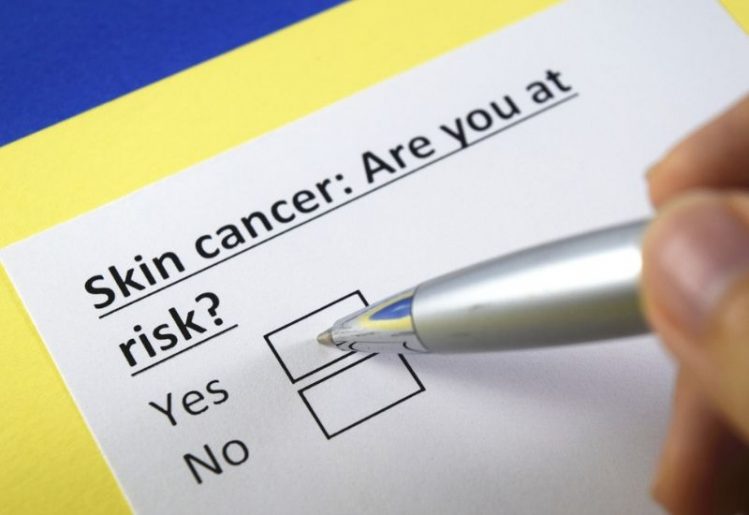Vitamin A is an important nutrient that helps our bodies grow and develop. Even in adulthood, it provides far-reaching benefits, helping to keep our reproductive systems, eyes and skin healthy. Getting sufficient amounts of vitamin A helps skin retain its smooth, youthful appearance, but until recently, it wasn’t known to provide any additional benefits to skin health. New studies suggest an increased intake of vitamin A can help fight off various types of skin cancer.
New Research Finds Link Between Vitamin A and Skin Cancer
 Recently, the results from a joint international study may have uncovered more ways that vitamin A helps the skin. The study examined how vitamin A intake affected the development of a common form of skin cancer, known as cutaneous squamous cell carcinoma. This study, led by Dr. Jongwoo Kim, aimed to establish whether an increased intake of vitamin A and carotenoids would lower someone’s chances of developing cutaneous squamous cell carcinoma.
Recently, the results from a joint international study may have uncovered more ways that vitamin A helps the skin. The study examined how vitamin A intake affected the development of a common form of skin cancer, known as cutaneous squamous cell carcinoma. This study, led by Dr. Jongwoo Kim, aimed to establish whether an increased intake of vitamin A and carotenoids would lower someone’s chances of developing cutaneous squamous cell carcinoma.
In attempting to find a link between vitamin A and skin cancer, the researchers evaluated health data from 75,170 women and 48,400 men. The average age of the women was 50.4 and the average age for the men was 54.3. The study involved follow-up research spanning a period of 26 years. Within those 26 years, the researchers found that there were 3,978 cases of skin cancer among the men and women, collectively.
The participants in the study filled out a survey every four years throughout the 26-year interval. Among other factors, they were asked to report on their vitamin A intake. Once this was compared to the incidences of skin cancer, it was found that a higher amount of vitamin A appeared to reduce the risks of developing cutaneous squamous cell carcinoma. The researchers also noted that the vitamin A intake reported in the study came mostly from food sources.
How to Tell If You Have a Vitamin A Deficiency
A vitamin A deficiency can result in serious consequences for both adults and children. Up to 500,000 instances of child blindness are attributed to vitamin A deficiencies each year. Vitamin A deficiency is also blamed for night blindness and maternal deaths in pregnant women. Additionally, the immune system is compromised when vitamin A is deficient, raising the risk of death from conditions like diarrhea, malaria and measles.
Some common signs of a vitamin A deficiency include:
- dry skin and/or dry eyes
- night blindness
- infertility or problems conceiving a child
- stunted growth in children
- respiratory tract infections
- slow wound healing
Men should consume up to 900 micrograms of vitamin A per day, while women should get at least 700 micrograms. Even though getting enough vitamin A is important, getting too much can be just as dangerous to your health. Taking very high amounts of vitamin A can lead to hypervitaminosis A, which is also known as vitamin A toxicity. Usually, hypervitaminosis A is caused by “megavitamin therapy,” which involves mega-dosing on vitamin A to prevent or treat certain diseases, or long-term use of acne treatments that contain large amounts of vitamin A.
Symptoms of hypervitaminosis A include:
- vision changes
- bone swelling
- dry or rough skin
- mouth sores
- mental confusion
If you’re concerned about your vitamin A intake, you should consult your doctor.
Natural Ways to Boost Vitamin A Intake
You may not be getting enough vitamin A. In that case, taking a daily supplement can help you get the vitamin A your body needs for good health. A high-quality dietary supplement can help you boost your intake without overdoing it. This can be especially beneficial on days that you don’t consume many vitamin A-rich foods, such as those listed below.
Salmon
This fish provides a vast array of health benefits, including providing 25 percent of the recommended intake of vitamin A. Additionally, it’s a good source of vitamin B12, selenium, potassium and omega-3 fatty acids.
Carrots
Either cooked or raw, carrots provide a good portion of your vitamin A needs. They also provide the body with iron, copper, vitamin C and vitamin K. Carrots are also an excellent source of fiber.
Goat Cheese
 Because it’s low in sodium, goat cheese is often a preferred source of vitamin A. It will also provide you with vitamin D and calcium, which are essential to strong and healthy skin and bones.
Because it’s low in sodium, goat cheese is often a preferred source of vitamin A. It will also provide you with vitamin D and calcium, which are essential to strong and healthy skin and bones.
Pumpkin
Pumpkin can be eaten in a variety of different ways, including pumpkin pie, and still provide your body with a diverse selection of nutrients. In addition to being a good source of vitamin A, pumpkin also has potassium, vitamin C and vitamin E. It has also been found to help lower the risks of developing type 2 diabetes.
Hard-Boiled Eggs
Eating hard-boiled eggs is easy, because they can be added to a number of different dishes. In addition to possessing a high vitamin A content, some research suggests eggs can also lower the risks of developing cataracts. They may also help improve cognitive functioning.
As more research explores the link between vitamin A intake and skin cancer, it seems clear that this vitamin is essential to skin health. Since skin cancer is a growing problem, finding more effective ways of preventing and treating it is essential. Ensuring you get enough vitamin A every day may be one way to protect against the development of skin cancer. Vitamin A can benefit your health in other ways as well, helping you to live a longer and higher-quality life.

